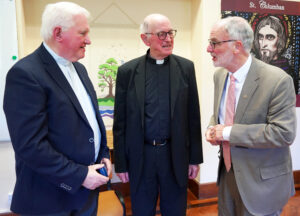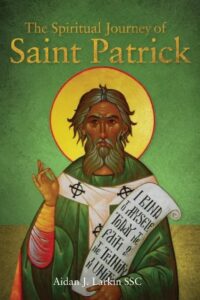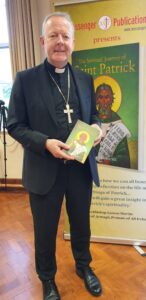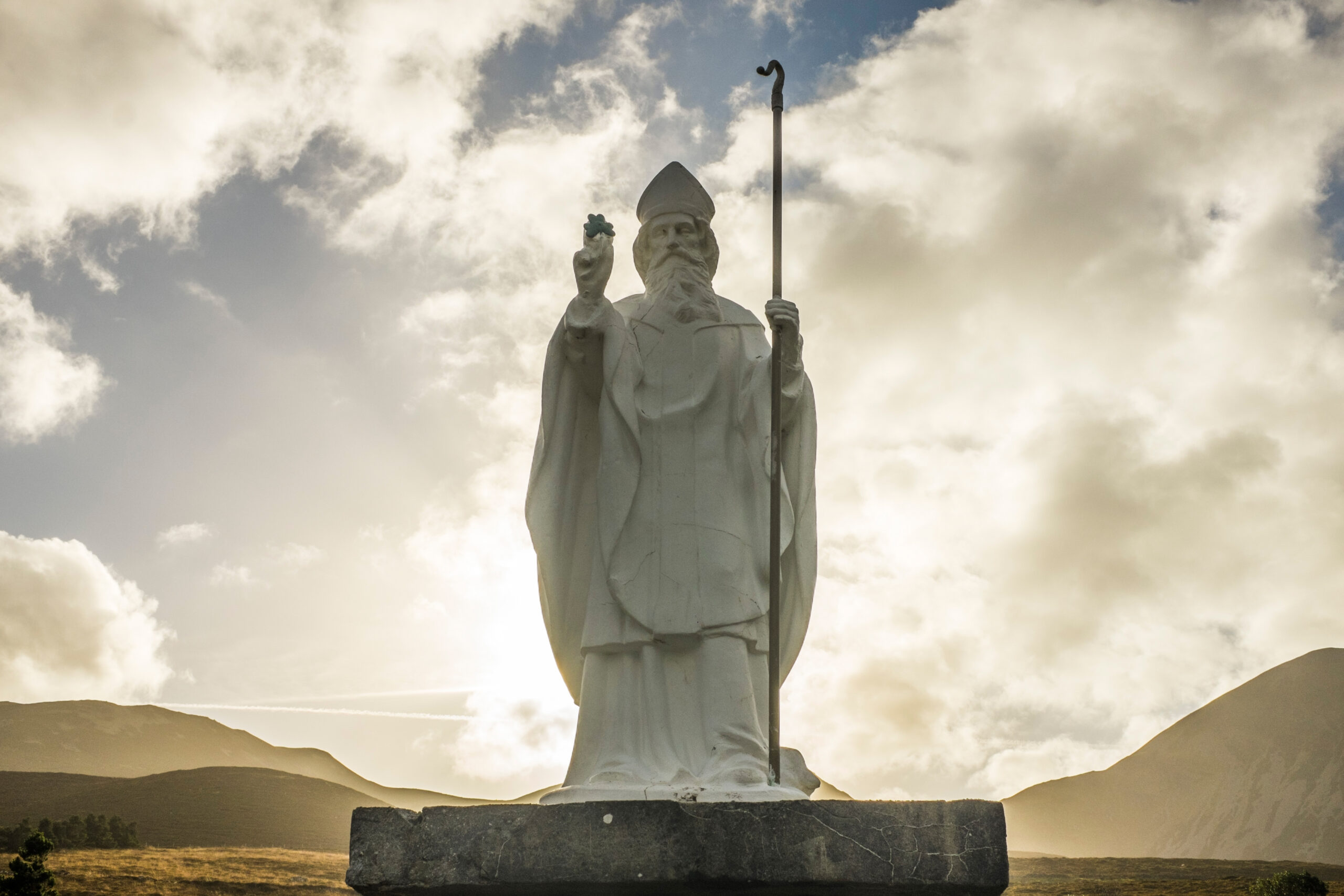Fr Maurice Hogan writes about the development of Patrician studies in recent years and the Columban contribution to this, notably Fr Aidan Larkin’s book, ‘The Spiritual Journey of St Patrick’.
The middle of the twentieth century witnessed a revolution in the study of St Patrick. It served to awaken a renewed interest in his person and work for to a new generation of scholars. We know that Patrick existed because of two short works written by him in Latin and are among the earliest documents in Ireland’s literary heritage. Although his letters are brief, we get a glimpse of the kind of person he was when we encounter him more directly for ourselves through his correspondence.
The earlier and shorter one is his Letter to Coroticus, a Christian British chieftain who with his soldiers carried out a raid in Ireland, killed some of Patrick’s newly made converts, and sold others into slavery. Patrick expresses his anguish over the fate of his newly baptised and denounces Coroticus in the hope that he would come to his senses and repent. His great love for his Irish converts shines through.

The Confession is a later document written towards the end of his life. A “confession” is an account of events whose truth is vouched for by the person who has lived through them. The letter is a spiritual testament primarily concerned with the inner life of Patrick in his search for God. It is rich in reflection and interior depth – his encounter with God, a defence of his life, his moral and religious struggles. He acknowledges God’s mercy and grace which he experienced throughout the course of his life despite his own failings and shortcomings.
As a slave in Ireland, he tells us, he searched earnestly for God through daily prayer. The God whom he encountered there never abandoned him and he finds his heart overflowing with gratitude to a God who guided him in all his sufferings, dangers, and labours. Looking back on a life crowded with bodily and spiritual trials but equally with great joys, he sees the hand of Providence at work in all of it.
Fr Dan Conneely’s research on St Patrick began when he was editor of the special centenary issue of the Far East in 1961. To his great surprise, he found that scholars until that time had given little attention to the rich spiritual, theological, and missionary content contained in the letters. They had combed the documents in search of material for a biography of Patrick, on fifth century Ireland, and remarked on the poor quality of his Latin. They dismissed Patrick as a person of little stature.

Fr Conneely realised that such scholarly work on Patrick’s correspondence was incomplete unless studied in their textual connection with Sacred Scripture, the writings of the early Church Fathers, and the teachings of the Church. His research added a completely new dimension to Patrician studies.
Fr Conneely compiled an exhaustive list of scriptural, patristic, and ecclesiastical quotations and allusions to provide evidence of Patrick’s familiarity with the Old and New Testaments as well as linking him with patristic authors, especially St Augustine. His wish was to communicate his research not only to scholars but also to present to ordinary people his new translation of the two pastoral letters together with their rich spiritual, theological, and missionary content.
Ordinary people would then be able to see for themselves that Patrick was indeed a great missionary, a person of intellectual stature, and above all an apostle of faith-life that revealed a deep connection between knowledge and holiness of life.
Faith-life is a manner of human living with Christ in our minds, hearts, and actions and Patrick availed of biblical language to articulate it. His favourite source was the Psalms which voiced the living faith of God’s people. We may distinguish faith-life from faith-belief. The former describes how the Gospel is lived in daily life as a personal encounter with the Triune God.
For, as Pope Benedict XVI pointed out: “Being Christian is not the result of an ethical choice, or a lofty idea, but the encounter with an event, a person, which gives life a new horizon and a decisive direction.”
Faith-belief, on the other hand, affirms and protects faith-life through its decrees and doctrines to defend against false accusations and heresies. Patrick lived towards the end of the Golden Age of the Fathers who witnessed to the living presence of the faith and contributed to the development of the Church’s Tradition. Over twenty Fathers are linked to Patrick’s correspondence which shows his clear dependence on them.
In the apparent haphazard events of his life, Patrick saw the hand of God at work in which the hidden plan for the salvation of the Irish people was realised. No extraordinary wonders marked his evangelizing work, nevertheless he touched the hearts of many young people who flocked to him to follow Christ in the religious life. Although we know little about dates and places where he worked, what shines through is his holiness of life which he regarded as a gift of God that leads him to wonder and gratitude.

Fr Aidan Larkin has generously responded to Fr Conneely’s wish that his research on Patrick be made available to the general reader (The Spiritual Journey of Saint Patrick, Messenger Press, Dublin, 2023). He reproduces both letters in their entirety together with the background necessary to appreciate their full contents.
His engaging and erudite presentation of Patrick’s spiritual journey may stir up in readers a desire to begin a religious search like Patrick’s that would bring about their own conversion and return to God. Patrick tells us that although he had been baptized, he had distanced himself from God and did not observe his commandments. He highlights God’s undeserved mercy that led him to a change of life.
His correspondence is an eloquent testimony to God’s love and mercy to wayward human beings. A re-reading of Patrick’s correspondence is of special relevance at a time of rapid social change in Ireland where Christian faith and values that formerly shaped our Irish identity are now under constant challenge. It can guide us to recognize who we are as a people and inspire us to remain true to the faith-life that has made us who we are.
Fr Maurice Hogan served as a missionary in Japan and Hong Kong and taught Sacred Scripture at St. Patrick’s College, Maynooth. He is a former Director of World Missions Ireland (Missio Ireland). His most recent book is ‘A Little Less than Angels: Sketch of a Biblical Anthropology’ published by Veritas in 2022.

